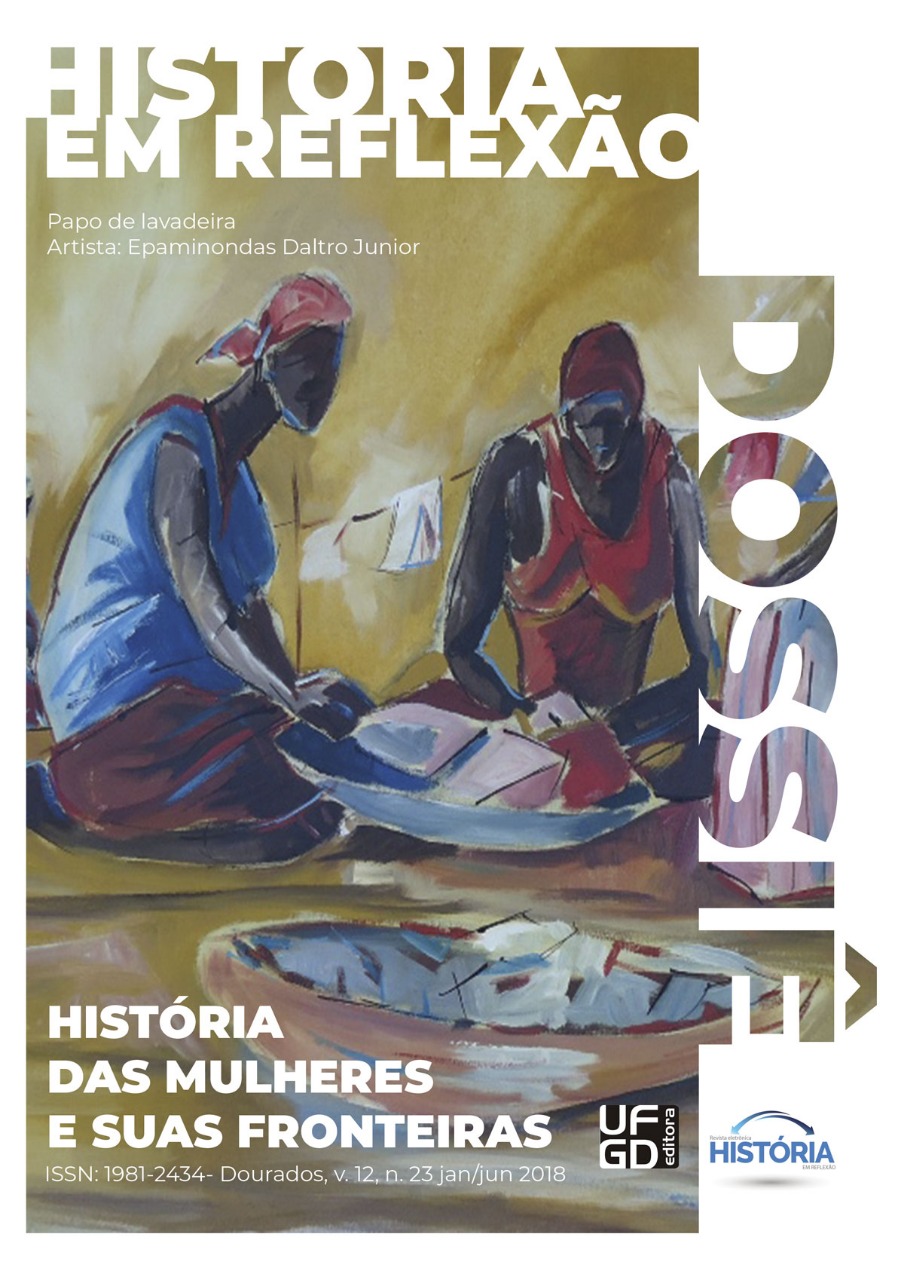Gender historiography and antiquity: women at the fourth century athenian courts
DOI:
https://doi.org/10.30612/rehr.v12i23.7958Keywords:
Gender historiography. Athenian women. Law-courts.Abstract
The current article came from our master's degree research on women and their representations and voices in the Athenian courts of the fourth century BC. The women's theme as generally oppressed and recluse to the private space has been increasingly studied and refuted, bringing new tendencies of the sources, especially those that allow studies within the imaginary, the habits and the daily life of the inhabitants of Athens. Therefore, starting from the gender historiography point of view - in the social relations between men and women - we pursue through discourses delivered in court a feminine universe beyond the propagation of ideals. For this we use three discourses as sources, having women in different social positions: courtesans, slaves, freedwomen and wives.Downloads
References
CANFORA, Luciano. O Mundo de Atenas. São Paulo: Companhia das Letras, 2015.
CAREY, Christopher. Legal Space in Classical Athens. In: Greece and Rome. Vol. Xli, nº 2, 1994, pp.172-186.
CURADO, Ana Lúcia. Mulheres em Atenas. As Mulheres Legítimas e as Outras. Lisboa: Sá da Costa Editora, 2008.
DUBY, G. PERROT, M. (org). História das Mulheres no Ocidente. Porto: Afrontamento, v. I, 1993.
FERRERO, Guglielmo. The Women of the Caesars. New York: The Century CO, 1911.
FRASER, Nancy. The fortunes of feminism. London/New York: Verso, 1992.
GAGARIN, Michael. Telling Stories in Athenian Law. In: Transactions of the American Philological Association (1974-), vol. 133, no. 2, 2003, pp. 197–207. JSTOR, JSTOR, www.jstor.org/stable/20054085.
GAGARIN, Michael. Women in Athenian Courts. In: Dike, 1, 1998, p. 39-51.
LACAPRA, Dominick. Retórica e História. Revista Territórios & Fronteiras. Trad. Eduardo Ferraz Felippe; Thiago Ponce de Moraes. Cuiabá, vol. 6, n. 1, jan.-jun., 2013, p.97-118.
LACAPRA, Dominick. Rethinking intellectual history; texts, contexts, language. 2nd ed., Ithaca: Cornell University Press, 1985.
LACAPRA, Dominick. History and criticism. 3nd ed., Ithaca; London: Cornell University Press, 1992.
LESSA, Fábio de Souza. Mulheres de Atenas: Mélissa do gineceu à ágora. Rio de Janeiro: LHIA, 2001.
LIMA, Alexandre Carneiro Cerqueira. Cultura popular em Atenas no V século a.C. Rio de Janeiro: 7 letras, 2000.
MORALES, Fabio Augusto. Democracia Ateniense pelo Avesso: Os Metecos e a Política de Lísias. São Paulo: Editora da Universidade de São Paulo, 2014.
ONELLEY, Glória. L. Estatuto social da cortesã no Contra Neera. In: Todas as Musas. São Paulo. Ano 03, nº 02, 2012.
OSBORNE, Robin. Athens and Athenian Democracy. Cambridge: The Cambridge University Press, 2010.
POMEROY, Sarah B. Godesses, whores, wives and slaves. Nova Iorque: Shocken Books, 1975.
POMEROY, Sarah B; BURSTEIN, Stanley M; DONLAN, Walter; ROBERTS, Jennifer. Ancient Greece. Nova Iorque: Oxford University Press, 1999.
RAAFLAUB, Kurt. A. Ktema es aiei. Thucydides' concept of “learning through history” and its realization in his work. In: TSAKMAKIS, A. & TAMIOLAKI, M. (org.). Thucydides between history and literature. Berlin, Boston: De Gruyter, 2013, p. 3-21.
RICOEUR, Paul. Tempo e narrativa. Trad. Roberto Leal Ferreira. Campinas: Papirus, 1997, p. 176-213.
RICHLIN, Amy. “Writing Women into History”. In: A companion to ancient history. Oxford: Blackwell, 2009.
SAVUNEN, Liisa. Woman and elections in Pompeii. In: Hawley, R. (Ed.), Levick, B. (Ed.), Levick, D. (Ed.). Woman and Antiquity: new assessments. London: Routledge, 1995.
SCOTT, J. História das mulheres. In: A escrita da história: novas perspectivas. São Paulo: Ed. UNESP, 1992, p.63-95.
SOMMERSTEIN, Alan H. Talking about laughter, and other studies in greek comedy. New York: Oxford University Press, 2009.
TAAFFE, Lauren. K. Aristophanes and Women. New York: Routledge, 2014.
KING, Helen. Hippocrates’ Woman: Reading the female body in Ancient Greece. London: Routledge, 1998.
Downloads
Published
How to Cite
Issue
Section
License
Os autores devem aceitar as normas de publicação ao submeterem a revista, bem como, concordam com os seguintes termos:
(a) O Conselho Editorial se reserva ao direito de efetuar, nos originais, alterações da Língua portuguesa para se manter o padrão culto da língua, respeitando, porém, o estilo dos autores.
(b) Autores mantém os direitos autorais e concedem à revista o direito de primeira publicação, com o trabalho simultaneamente licenciado sob a Atribuição-NãoComercial-CompartilhaIgual 3.0 Brasil (CC BY-NC-SA 3.0 BR) que permite: Compartilhar — copiar e redistribuir o material em qualquer suporte ou formato e Adaptar — remixar, transformar, e criar a partir do material.
A CC BY-NC-SA 3.0 BR considera os termos seguintes:
- Atribuição: Você deve dar o crédito apropriado, prover um link para a licença e indicar se mudanças foram feitas. Você deve fazê-lo em qualquer circunstância razoável, mas de nenhuma maneira que sugira que o licenciante apoia você ou o seu uso.
- NãoComercial: Você não pode usar o material para fins comerciais.
- CompartilhaIgual: Se você remixar, transformar, ou criar a partir do material, tem de distribuir as suas contribuições sob a mesma licença que o original.
- Sem restrições adicionais: Você não pode aplicar termos jurídicos ou medidas de caráter tecnológico que restrinjam legalmente outros de fazerem algo que a licença permita.



